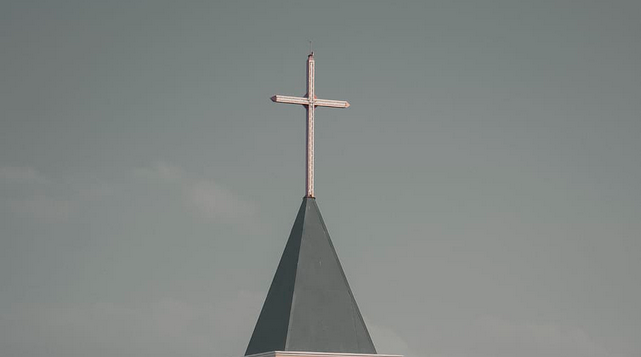During the height of COVID in 2020, numerous states made an incredible decision to declare abortion clinics essential while closing down churches. The irony of saying killing babies was essential while worshiping God caused a tremendous outrage among pro-life Christians nationwide.
To ensure this never happens again, Arizona Governor Doug Ducey signed a bill yesterday declaring churches essential, even during an emergency like COVID.
HB 2507 requires the state to let churches remain operational during an emergency “to the same or greater extent as other organizations or businesses that provide essential services and that are necessary and vital to the health and welfare of the public.”
The legislation still allows Arizona to have religious organizations “comply with neutral health, safety or occupancy requirements issued by the state government.”
The pro-life Center for Arizona Policy supported the legislation.
“The Religion is Essential Act ensures that churches and other religious organizations receive equal treatment during a public crisis, allowing them to remain open on the same terms as other businesses and services that are deemed essential. It further protects religious organizations against government discrimination based upon the organizations’ religious identity or activities,” it said.
SUPPORT LIFENEWS! If you like this pro-life article, please help LifeNews.com with a donation!
“Public officials have the authority to protect health and public safety, but the First Amendment – including the free exercise of religion – is never suspended,” it added. “At a minimum, the First Amendment requires government to treat religious organizations the same as comparable secular organizations. When the government treats churches worse than casinos, gyms, and indoor malls in its COVID-19 response, it violates the Constitution.”
The U.S. Supreme Court stepped in to affirm religious freedom after a number of states put restrictions on churches not levied on similar secular gatherings. The Court found California and New York violated the U.S. Constitution by discriminating against religious houses of worship. Justice Neil Gorsuch stated, “Government is not free to disregard the First Amendment in times of crisis.”
The Supreme Court has upheld the Free Exercise Clause of the First Amendment many times writing, “The Constitution forbids laws that prohibit the free exercise of religion. That guarantee protects not just the right to be a religious person, holding beliefs inwardly and secretly; it also protects the right to act on those beliefs outwardly and publicly.”2 Also, “The Free Exercise Clause of the Constitution guarantees religious believers—at a bare minimum—equal treatment under the law.”3
Religious houses of worship and organizations provide extensive benefits to our country, not only in meeting the spiritual needs of our populace, but also supporting social services, health care, and economic activity. Religion contributes $1.2 trillion annually to the nation’s economy and society. This includes charitable activities, health care, educational services, and millions of volunteer hours in programs that help the poor, individuals struggling with addiction or mental illness, and even job training programs. “Congregations, businesses inspired by faith, faith-based charities and institutions not only build communities and families but also strengthen our economy in every town and city of the country.” 4 These services are vital to the community, especially during a crisis.
HB 2507 establishes religious services as essential operations and deems them necessary and vital to the health and welfare of the public. It ensures religious organizations can continue to operate during a public emergency to the same or greater extent as other businesses or services declared essential. It permits the government to implement neutral health and safety requirements on all essential businesses and services unless the rules substantially burden the ability of a religious service to exercise its faith.
It generally prohibits the government from discrimination against a religious organization because of its religious identity or practices, thus codifying the recent U.S. Supreme Court decisions in Trinity Lutheran Church of Columbia, Inc. v. Comer and Espinoza v. Montana Department of Revenue.
The bill also creates a private right of action for violations of this Act, providing remedies to a religious organization that experiences government discrimination.
The bill does not apply to criminal conduct or tort actions brought by victims of criminal conduct against religious organizations, employees, or volunteers of religious organizations.








